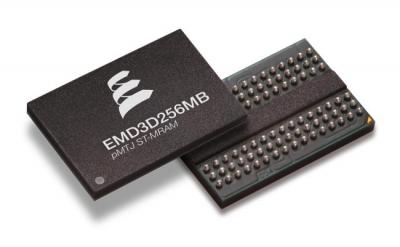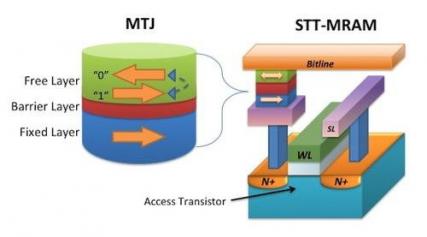IMEC researchers demonstrate the world's smallest pMTJ at 8nm
Researchers at IMEC developed a 8nm perpendicular magnetic tunnel junction (pMTJ) with 100% tunnel magnetoresistance (TMR) and a magnetic coercive field up to 1,500 Oe in strength. The researchers also demonstrated integrated 1Mbit STT-MRAM 1T1MTJ arrays with pitches down to 100 nm.
IMEC says that this is the world's smallest pMTJ - which paves the way for high density stand-alone MRAM applications. The pMTJ was developed on 300mm silicon wafers in a production process that is compatible with the thermal budget of standard CMOS back-end-of-line technology.











